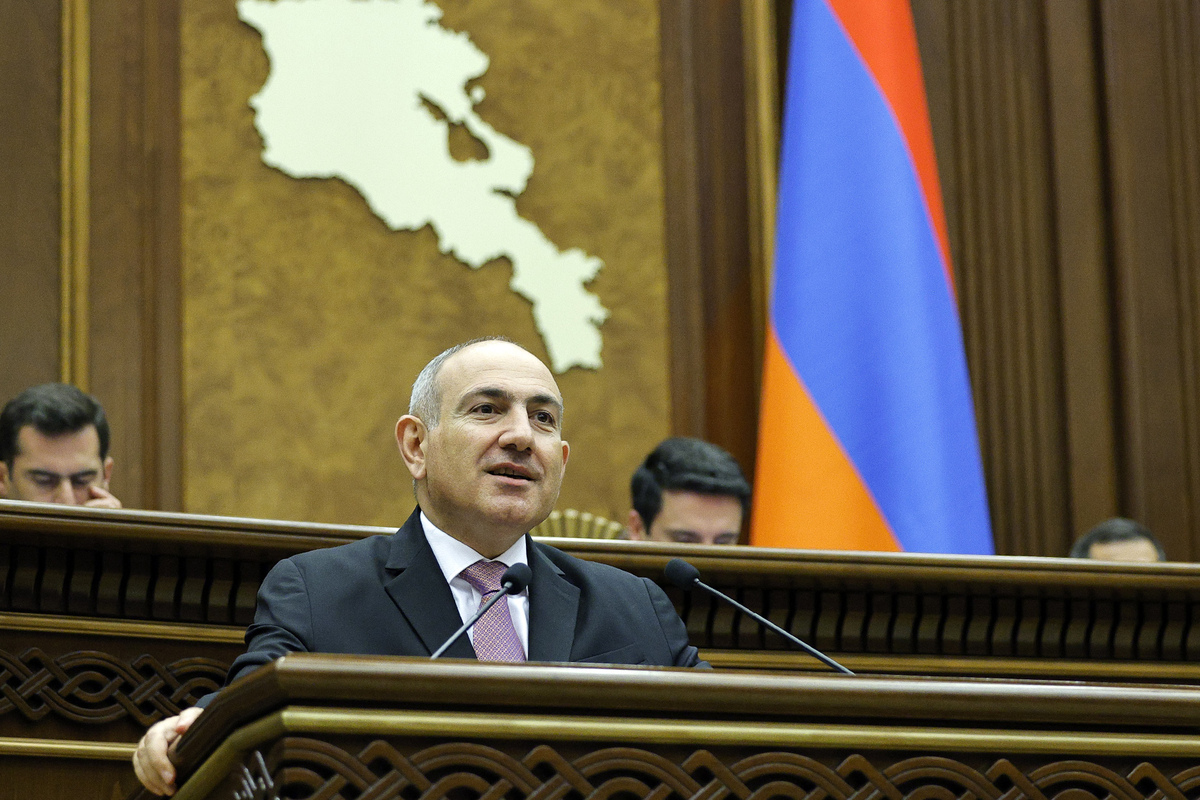In a striking address before Parliament, Armenia’s Prime Minister Nikol Pashinyan challenged the prevailing narrative surrounding the loss of Artsakh (Nagorno-Karabakh), reframing it instead as a defining moment in Armenia’s modern statehood.
“We didn’t lose Nagorno?Karabakh (Artsakh), we found the Republic of Armenia. This is the truth,” Pashinyan declared, responding to opposition criticism that he was the first Armenian leader to formally recognize Artsakh as part of Azerbaijan and acknowledge Azerbaijan’s territorial integrity, referencing the October 6, 2022 agreement. He added that for many years, the Artsakh issue “was used as a rope” to prevent Armenia from becoming an independent and sovereign nation.
He explained that although he was elected in 2018, he still viewed himself as an “outpost Prime Minister,” operating within a logic in which Armenia was treated not as a goal in itself, but as a means to serve larger geopolitical aims. “After November 2020, I have probably been in the position of the most outpost prime minister,” he said. However, following the 2021 parliamentary snap elections—which he described as a critical turning point—Pashinyan said he and his political team began to re-evaluate that mindset and chose to break from it.
Pashinyan identified October 6, 2022, as the day he “became a full-fledged Prime Minister of the Republic of Armenia.” That date marks a pivotal moment during talks in Prague, where Armenia and Azerbaijan, with European mediation, agreed to mutually recognize each other’s territorial integrity—effectively meaning Armenia recognized Artsakh (Nagorno-Karabakh) as part of Azerbaijan.
Opposition figures have since accused Pashinyan of being the first Armenian leader to formally recognize Artsakh as Azerbaijani territory. But he framed October 6 as a sobering and necessary moment in Armenia’s statehood journey. It was then, he said, that he confronted a deeper national dilemma: “Do we ourselves recognize the territorial integrity of the Republic of Armenia, that we are once again offended by others who do not recognize the territorial integrity of the Republic of Armenia?”
He made the remarks on June 19 while addressing Parliament, defending his government’s position on Artsakh during debates on the implementation of the 2024 state budget. His comments came in part as a response to opposition MP Tadevos Avetisyan of the Hayastan faction, who presented statistical data during the session indicating a decline in living standards under Pashinyan’s leadership.
Pashinyan began by emphasizing the importance of democratic discourse, noting that in any democracy, criticism of the government is both necessary and inevitable, and that the dynamic between opposition and leadership is essential to the political process. Acknowledging the complexity of governance, he used the moment to reflect on his personal evolution in office.
The PM’s remarks were both philosophical and political. He criticized what he described as outdated, trauma-based worldviews that had shaped Armenian foreign and domestic policy for decades. Pashinyan presented his administration’s doctrine under the banner of a “Real Armenia,” centered on peaceful coexistence, the rule of law, and mutual recognition of borders—including with neighbors like Turkey and Azerbaijan, whose relations with Armenia have long been marred by hostility and unresolved conflict.
Critics, however, argue that these policies came at a steep price: the effective abandonment of the ethnic Armenian population of Artsakh (Nagorno-Karabakh), many of whom were displaced following Azerbaijan’s 2023 military offensive that brought the region under full Azerbaijani control.
Pashinyan argued that Armenia’s failure to clearly assert its own borders for decades had made it vulnerable—not only to foreign aggression but to chronic internal confusion about national identity. Recognizing the country’s full territorial integrity, he argued, was necessary for its sovereignty to be acknowledged by the world. He further criticized what he described as an “imperial model of patriotism” that had long shaped the Armenian worldview—a framework that prioritized inherited trauma and regional entanglements over the assertion of independent statehood. This model, he suggested, limited Armenia’s ability to act as a modern state focused on development, security, and diplomacy.
Instead, Pashinyan advocated for what he called the vision of “Real Armenia”—a nation firmly rooted in its own defined territory, engaging with its neighbors through peaceful diplomacy, and rejecting historical narratives that, in his view, had shackled national growth. He said, “We do not have our own formulas for perceiving the world,” he said. “And this is one of the key causes of our national insecurity.”
While acknowledging the country’s ongoing challenges, Pashinyan used the moment to reassert his broader political vision. He framed his government’s foreign policy—based on the mutual recognition of borders and pursuit of peaceful regional relations—as essential to Armenia’s long-term survival and development.
Pashinyan closed on an optimistic note: “I and all of us, at least I, because I have not spoken to everyone in great detail, are more optimistic than ever about the future of the Republic of Armenia. I want to say again that this is not a story of failure, but of success, and this is one of my most important observations at this moment.”


